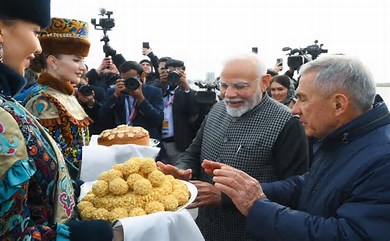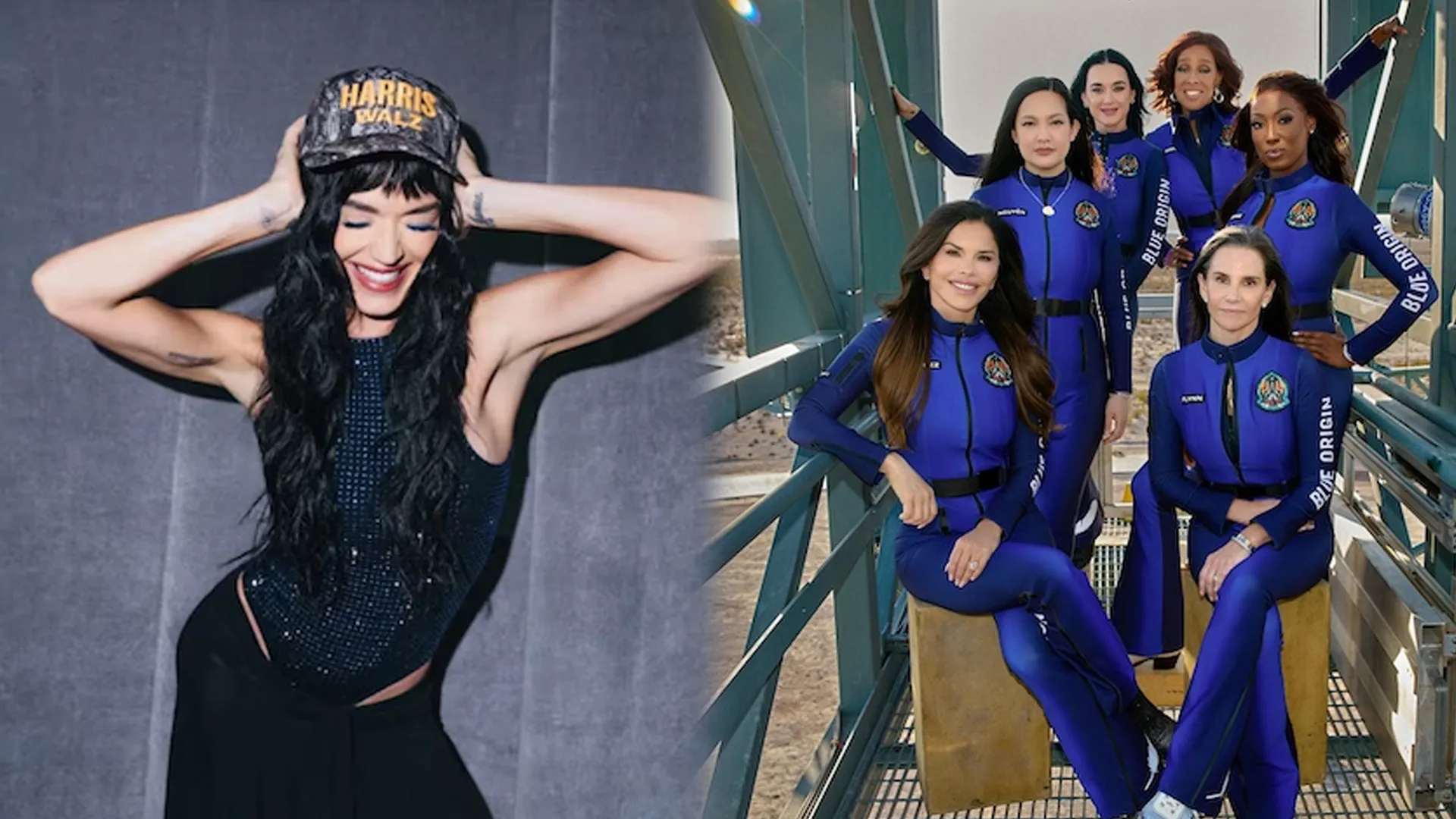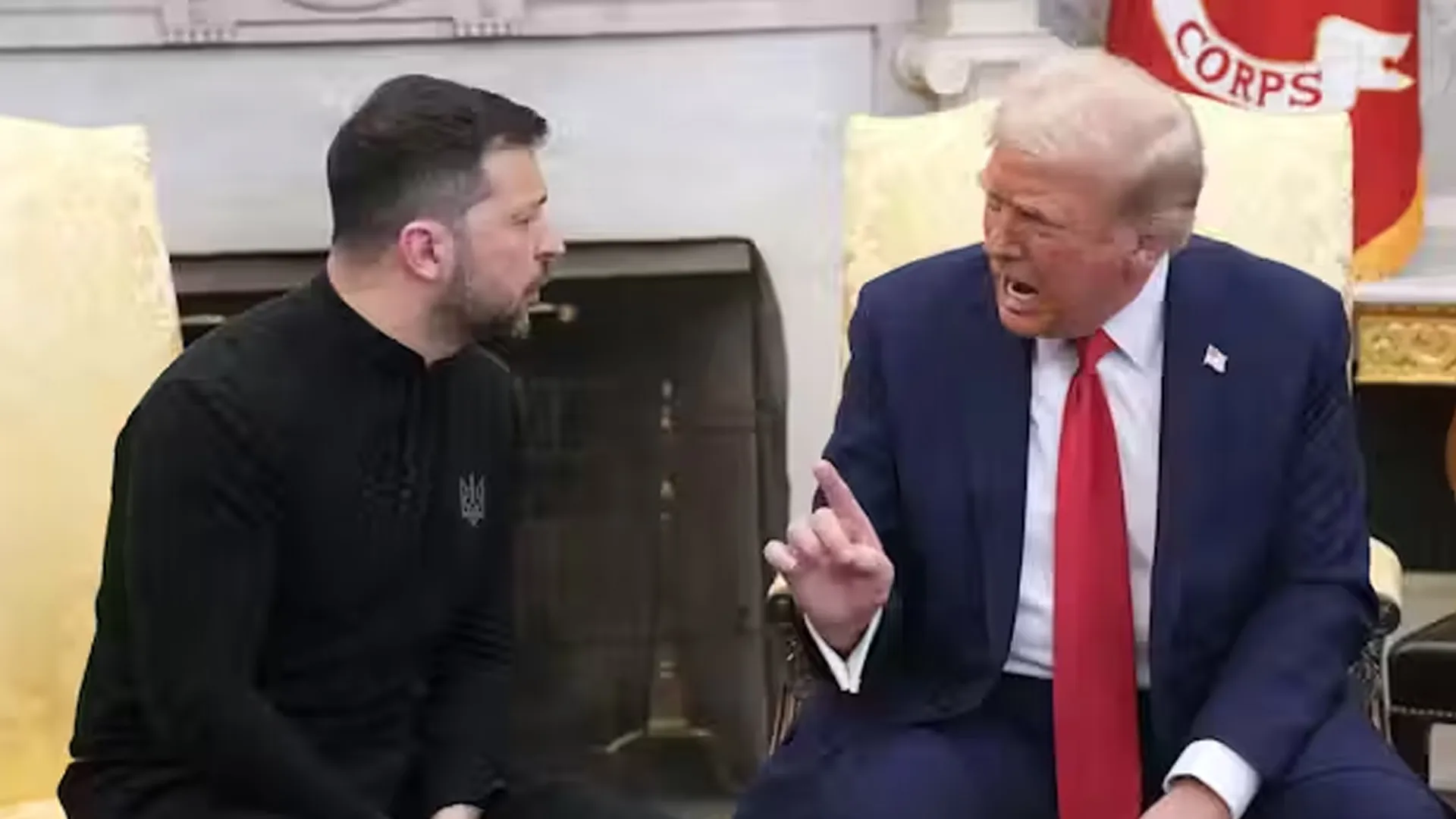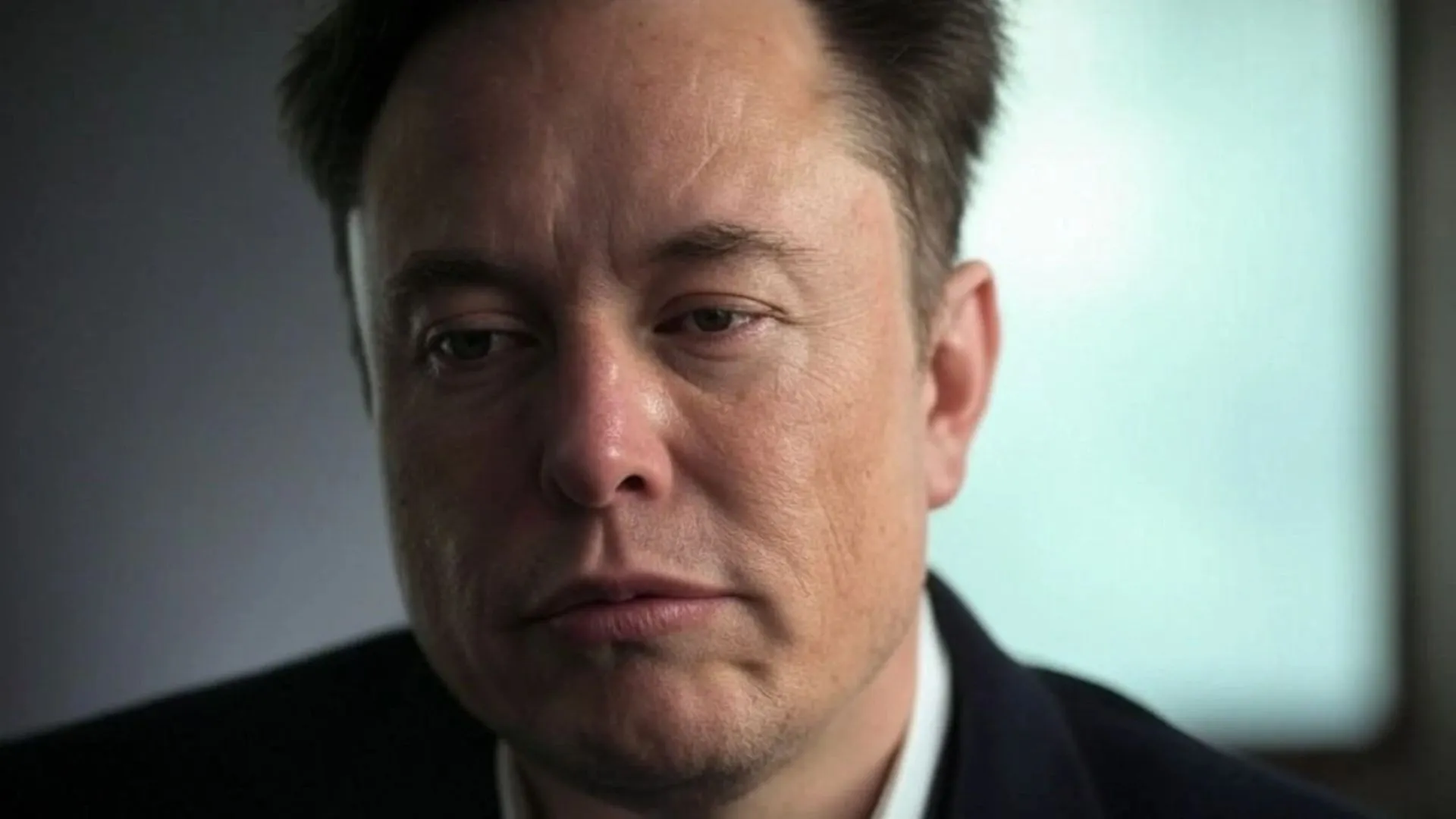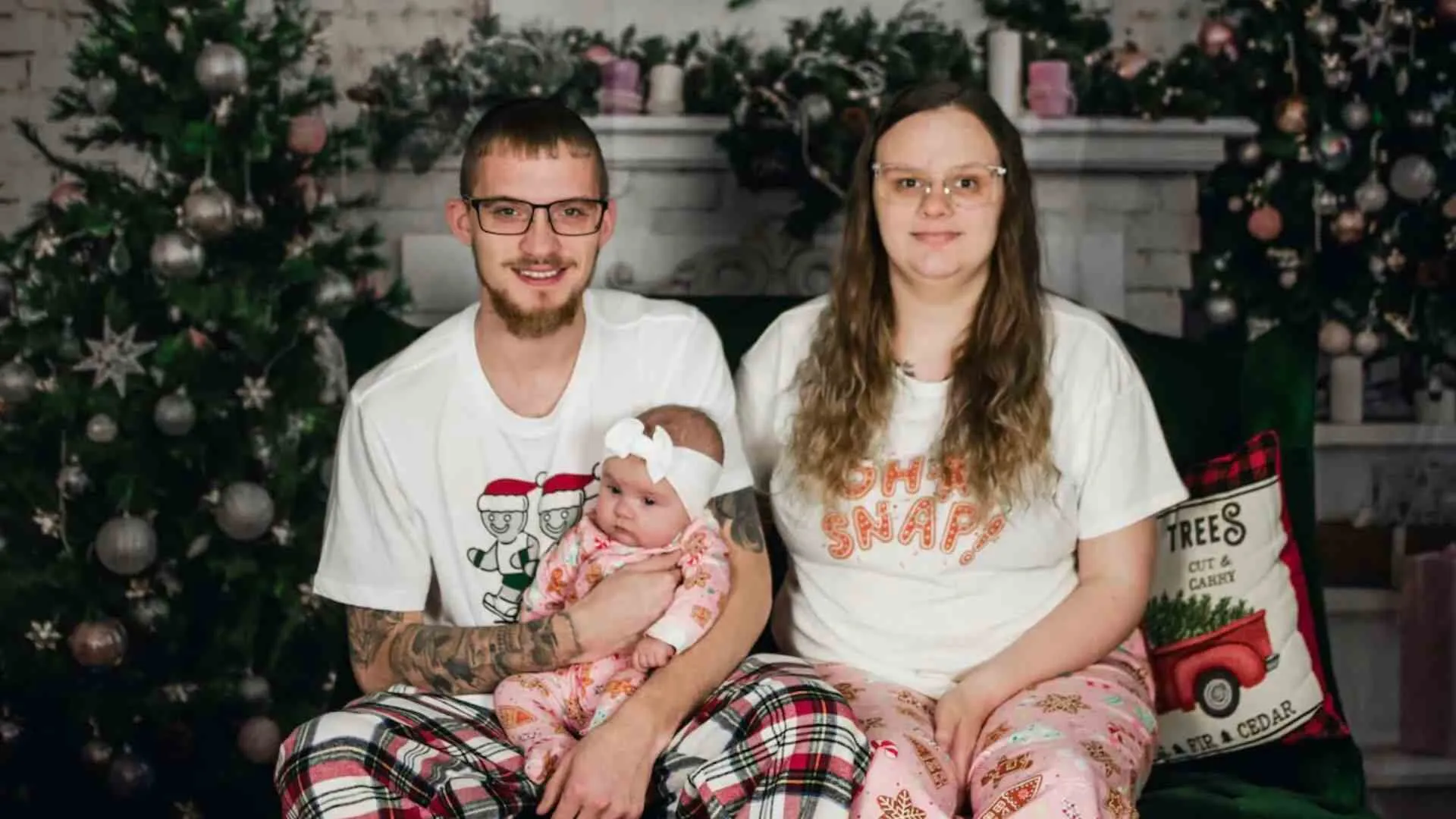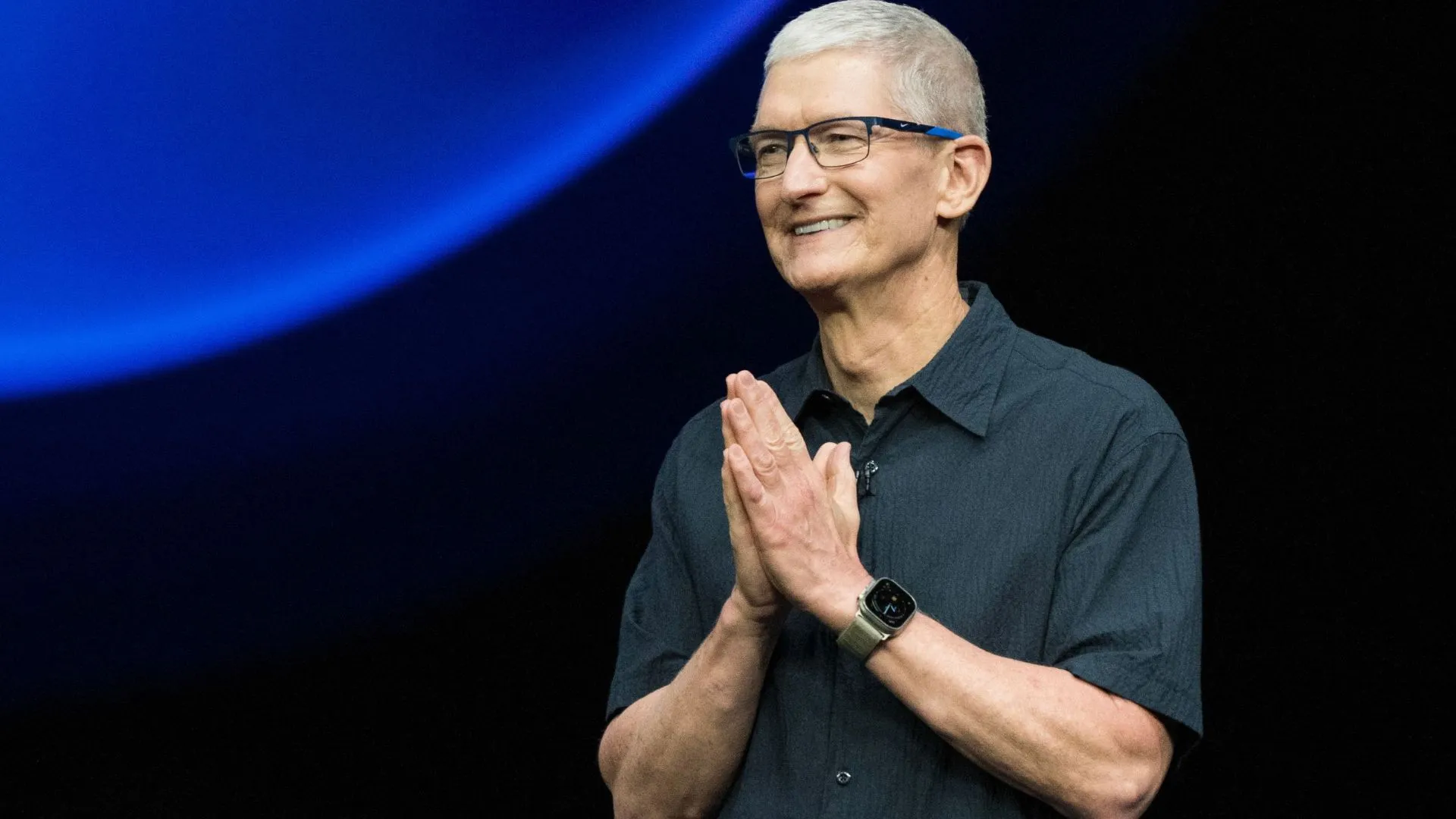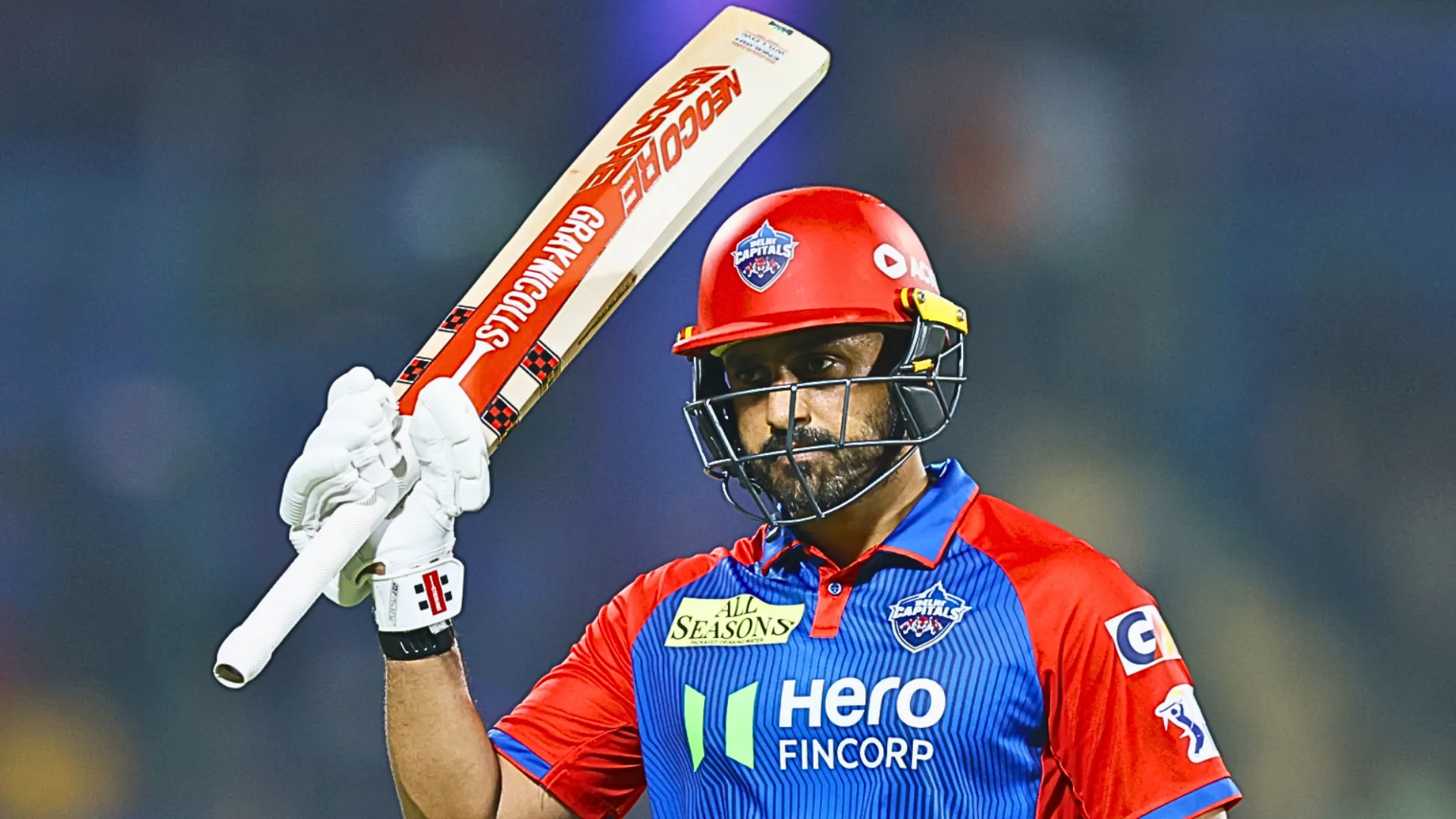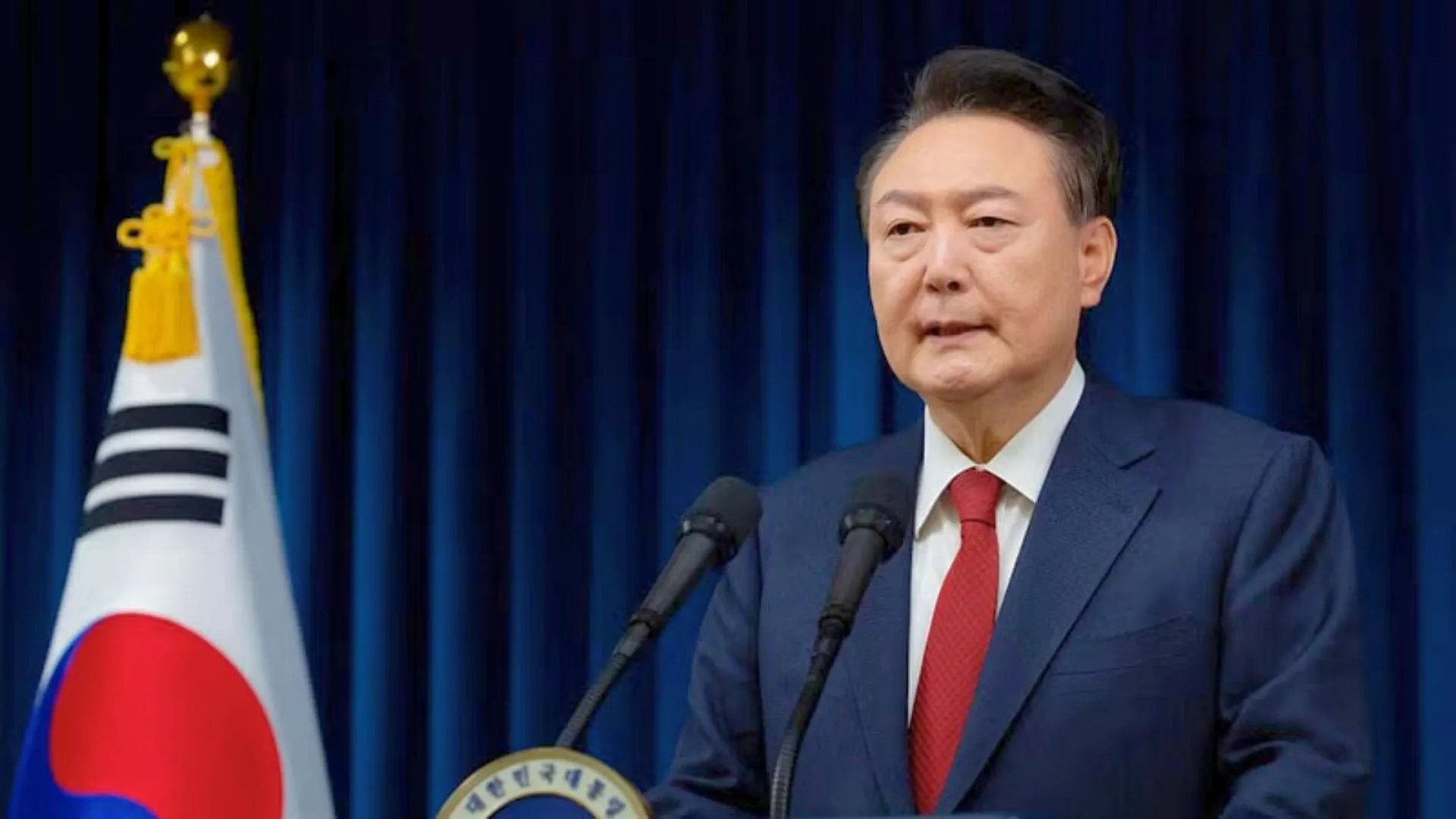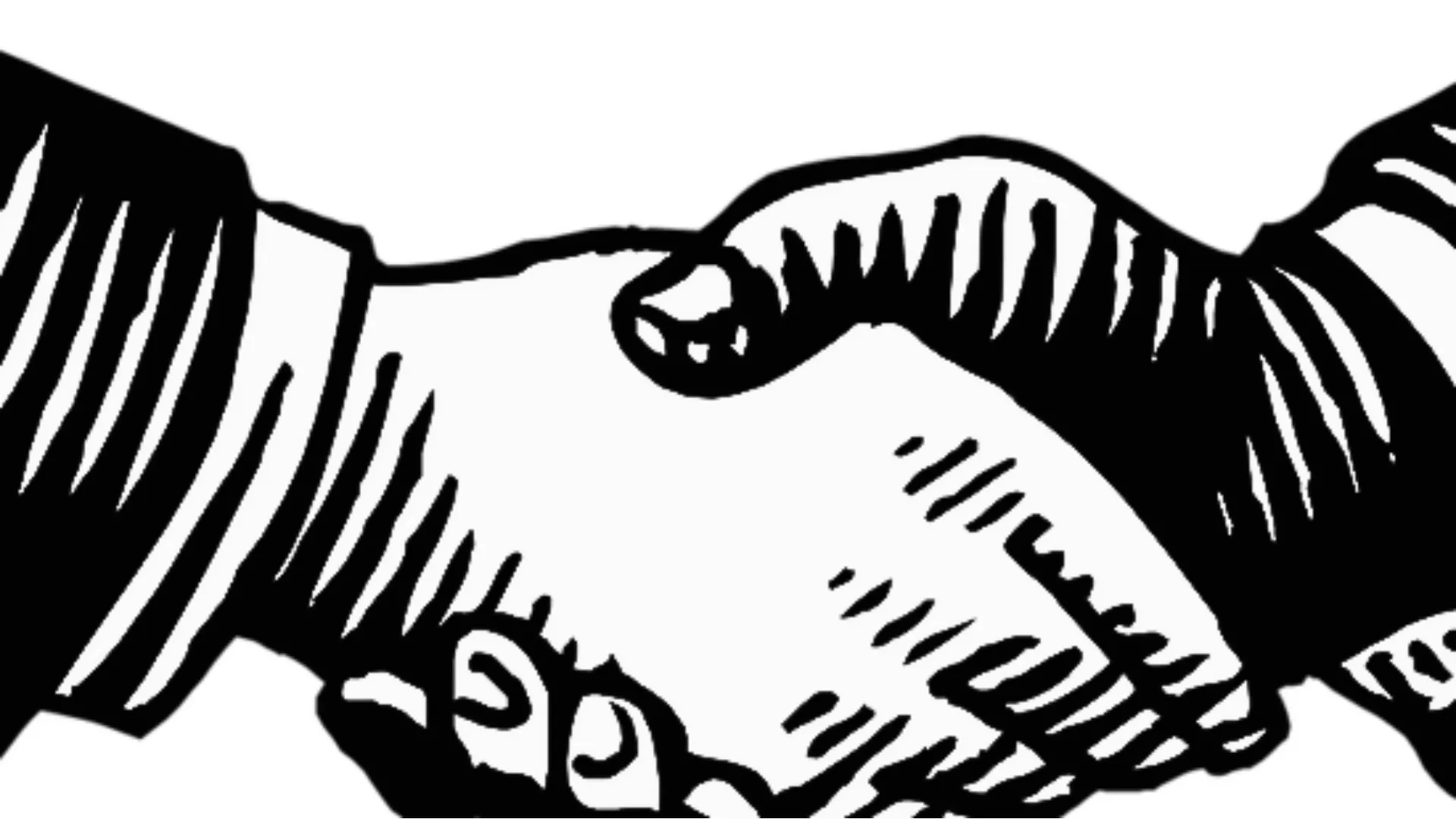During his arrival in Kazan, Russia, for the BRICS summit, Prime Minister Narendra Modi was welcomed with plates of traditional Russian treats—chak-chak laddus and korovai bread. These dishes are not just ordinary snacks; they carry deep cultural and historical significance, rooted in the rich traditions of Russia’s Tatar and Bashkir regions.
What is Chak-Chak?
Chak-chak is a sweet delicacy made from fried pieces of wheat dough, often resembling small balls or strings, similar to Indian sev. Once fried, these pieces are coated in a hot syrup of honey and sugar, binding them into a mound of sweetness. While chak-chak is a staple at everyday gatherings in Tatarstan and Bashkortostan, it also plays a significant role in celebrations like weddings.
Interestingly, chak-chak symbolizes the strength and unity of family. It originates from the Tatar and Bulgarian cultures, reflecting the region’s rich, multicultural history.
The Meaning of Korovai
Korovai, on the other hand, is a round loaf of bread adorned with floral patterns and intricate designs. Deeply rooted in Eastern Slavic traditions, this bread is often served at weddings, symbolizing unity, prosperity, and fertility. Its round shape is believed to represent the sun, a nod to the ancient Slavic worship of the Sun God.
In Russian wedding customs, korovai is shared among guests, symbolizing the strength of relationships and future prosperity. Tasting a piece of this bread with salt was traditionally seen as a gesture of friendship and a willingness to share in the host’s burdens.
Diplomacy Through Food
As PM Modi and other world leaders were greeted with these traditional offerings, the symbolism extended beyond just food. Chak-chak and korovai represented warmth, unity, and the strengthening of ties—a subtle yet powerful message in international diplomacy.
Food has often been a bridge between cultures, and this warm reception in Kazan beautifully demonstrated how traditions can foster deeper connections between nations.

